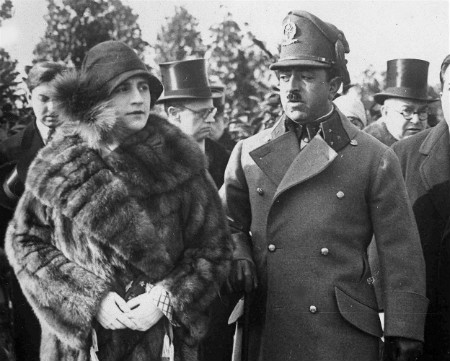Khaama Press, August 18, 2016
King Amanullah and the Struggle of Modernity in Afghanistan
While he failed to achieve his dream of a modern Afghanistan, his genuine efforts and sincere words must inspire a new generation to complete the task
By Kawun Kakar
Similar to our many other national achievements, our Independence Day is a blend of celebration and mourning — on this day in 1919 Afghanistan won full independence from the superpower of the time, it is also a day of remembering the short reign of the enlightened King Amanullah, who took enormous personal and political risks, and failed, to reform the Afghan state and society.
King Amanullah successfully placed Afghanistan in the international scene. He also led the way and challenged his fellow countrymen to set themselves free of medieval political and social structures.
His far reaching reforms included:
1. Adopting Afghanistan’s first constitution that guaranteed civil rights, and established of an advisory assembly.
2. Establishing a court system to enforce modern penal, civil, and commercial codes.

Queen Soraya and King Amanullah Khan of Afghanistan walk in Berlin during an official visit to Germany, Feb. 24, 1928. (Photo: AP)
3. Abolishing subsidies and privileges for tribal chiefs and the royal family, and building a modern military force free of tribal influence and linkages.
4. Introducing modern education (for girls as well as boys), sending off the first group of Afghan women to Turkey for higher education, and opening adult and nomad education classes.
5. Discouraging the veiling of women and multiple marriages by men, and abolishing slavery and forced labor.
6. Adopting the first National Budget, establishing the first National Bank, reorganizing the entire tax structure, instituting anti-corruption campaigns, and introducing Afghani as the new unit currency.
King Amanullah’s reforms, many of which are rather similar to those currently being implemented, antagonized too many political, social and religious elites who denigrated them as crude westernization. They revolted at one time and other and he, who did not wish to fight his people, abdicated in 1929, and the country descended in a civil war.
Afghanistan has not overcome that trauma — Afghan leaders have ever since developed psychological aversion to steady modernization for fear that it will face backlash of the masses. Too often the agenda of modernization has been left to fringe political groups, sometimes with catastrophic consequences.
Today Afghans, the leaders and especially the youth, must rigorously and continuously study King Amanullah, the person and his reign, just like Americans pour over every detail of Abraham Lincoln’s, for he embodies Afghanistan’s long struggle with modernity.
While he failed to achieve his dream of a modern Afghanistan, his genuine efforts and sincere words must inspire a new generation to complete the task. Afghans must also take the lesson that it is too risky and uncertain to expect an enlightened leader or the state to impose modernization, and must take measures, in their everyday lives at home, in workplace, in their communities and in their political discourse and gatherings, to lead the way into the modern world.
Characters Count: 3746
